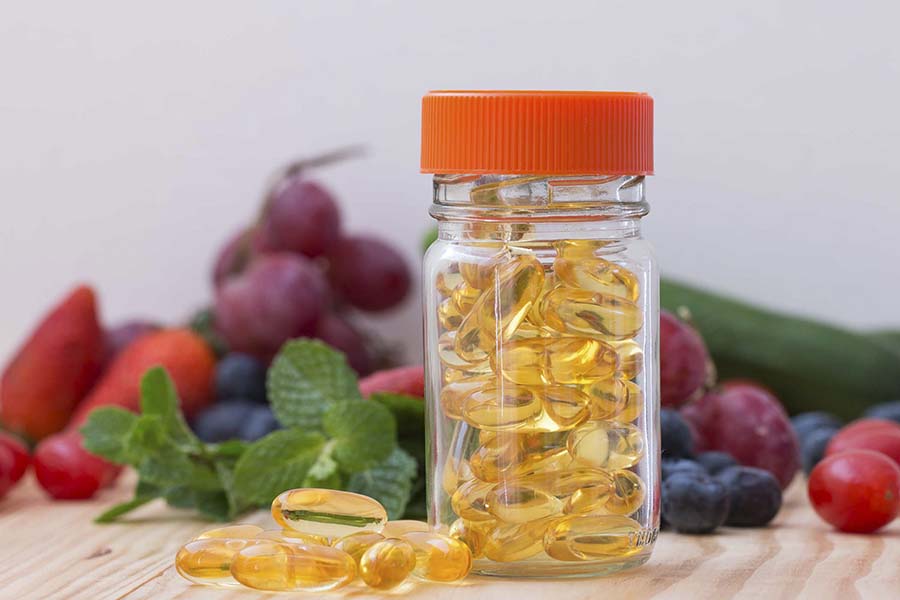Knowing the Edible Products You Buy
Friday, September 14, 2018
By Nurhan Dunford, FAPC Oil/Oilseed Specialist
Health and wellness continue to drive the global food and beverage markets. According to Euromonitor, a company which publishes market research reports across a broad range of topics including food and beverages, worldwide sales of naturally healthy foods reached $253 billion and functional/fortified foods totaled $247 billion in 2017.
There is no doubt consumers, including Millennials and even Gen Z driven by their parents are conscious about what they eat, but I am not quite sure if everyone is really cognizant of the effect of different types of edibles on their well-being. I remember seeing several news in the popular media that some consumers had health complications after ingesting energy boosting drinks and products containing plant-based extracts, a few resulting in hospitalization and even death.
The terms “functional foods,” “health foods,” “naturally healthy foods,” “dietary supplements” and “nutraceuticals” can be very confusing to consumers. Adding to the confusion, the legal definitions for nutraceuticals and functional foods may vary in different countries and even in different states. Understanding the product label information, including ingredients list and health claims and warnings, is critical for making informed decisions about the products we purchase and consume.
The U.S. Food and Drug Administration regulates foods, food additives, drugs and cosmetics. Yet, the regulations and rules used to monitor the dietary supplements, The Dietary Supplement, Health and Education Act of 1994 are very different than the regulations used for the foods and drugs. DSHEA defines a dietary supplement as “a product (other than tobacco) intended to supplement the diet that bears or contains one or more of the following dietary ingredients: vitamins, minerals, amino acids, herbs or other botanicals; a concentrate, metabolite, constituent, extract or combination of the ingredients listed above.” They must be designed for ingestion in pill, capsule, tablet, powder or liquid form and not be represented for use as a conventional food.
According to the FDA, a drug is “an article intended to diagnose, cure, mitigate, treat or prevent disease.” The manufacturer of a new food additive or a drug must conduct safety studies and must submit the results to the FDA for review and premarket approval. Nevertheless, dietary supplements do not require premarket testing and/or approval. Dietary supplements can be marketed without satisfying the FDA’s safety criteria. According to the DSHEA, the manufacturer is responsible for the safety evaluation of the product.
Functional foods are products that have a potentially positive effect on health beyond basic nutrition. They look like conventional foods and are formulated to promote good health and help reduce the risk of disease. Some examples of functional foods include oatmeal that naturally contains soluble fiber and may help lower cholesterol levels in blood. An example of a formulated functional food would be orange juice fortified with calcium for bone health. The FDA regulates the health claims that manufacturers can make about functional foods.
Nutraceuticals are “foods or parts of food that provide medical or health benefits, including the prevention and treatment of disease.” Similar to the dietary supplements, nutraceuticals are mostly marketed in the form of tablets, pills or liquid form. Unfortunately, nutraceuticals like the other food-derived edible categories discussed in this article do not have a specific or distinct definition from those of others. Nutraceuticals also are referred to as pharma-foods and designed to be used beyond the diet but before the drugs to prevent and treat medical conditions of the subjects who may not yet be eligible for conventional pharmaceutical therapy. Consumer interests in preventive therapies and self-medication are the drivers of the nutraceutical market. Nutraceuticals are monitored under DSHEA. Unfortunately, some nutraceuticals may lack credibility in terms of product chemical composition and health claims made on the labels. Indeed, a study carried out in my research group on nutraceuticals collected from local health stores revealed the amounts of active compounds declared on product labels did not match what we measured in the labs. The higher the price of a product is not necessarily an indication of higher quality.
It is critical that we as consumers understand the content, intended function and potential effects of various categories of edibles available in the market. Reading and understanding the information provided on the product labels are the least we can do to protect ourselves from unintended harms and get the most benefit out of the products of choice.
While reading the products labels, keep in mind that “food additives” found in products marketed in the form of conventional foods are regulated and approved by the FDA and have a long history of safe use. On the contrary, dietary supplements and nutraceuticals do not have to go through a rigorous safety and efficacy testing and risk assessment process.
I would like to emphasize the utmost importance of awareness that safe dose and bioavailability of the same compounds naturally present in conventional foods could be very different when they are delivered in various forms and matrices, i.e. functional foods, nutraceuticals versus conventional foods. For example, tryptophan is an essential amino acid naturally occurring in plants and animals. It also is marketed as an herbal supplement targeting treatment of depression and some other ailments. The effect of tryptophan on our well-being could be very different when we eat plant- and animal-based foods containing this amino acid as compared to ingesting herbal supplements enriched in tryptophan because of the higher dose and the differences in matrix/formulation (plant or animal material versus purified extract). At higher doses some food components may have adverse pharmacological activities and side effects.
I am not advocating you should not try functional foods and nutraceuticals. If you desire to do so, choose your product based on the available scientific knowledge, current regulations used for monitoring various edible categories, the information provided on the product packaging and the state of your health and potential interactions of the pharmaceuticals you might be taking with the active compounds in the product of choice.

